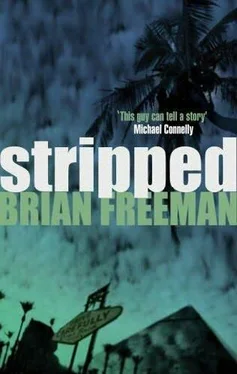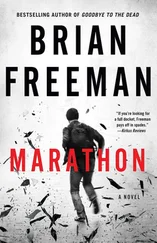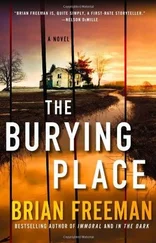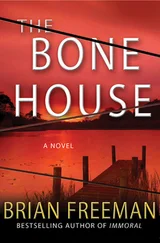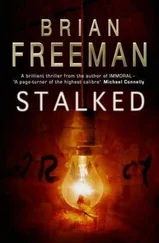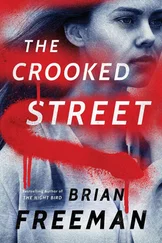Lovers. She had found ways to rationalize it over the years or pretend it was something other than what it was, but they were lovers. Serena realized, as she was telling the story, that she wanted to feel some of that sexual power again. She wanted to be the one to arouse Claire, and she knew, watching Claire shift her limbs on the sofa, that she was turning her on. She could have this woman. She could make Claire do anything to her. She could get back anything that she wanted.
It was a heady sensation, as if she were drinking again.
Even when she told her about leaving Deidre, and the destructive cycle that led to Deidre’s death, she no longer felt close to tears, as she usually did. She was strong, because she had to be.
“That’s a lot of guilt to carry around,” Claire said, when Serena was finished. “But I forgot, you’re tough.”
“I was cruel.”
“Do you think you can make it up to Deidre by making love to me?” Claire asked. She was too smart to be fooled. “Because you can’t. I don’t want that”
“What do you want?” Serena asked.
Claire didn’t miss a beat. “I want you to fall in love with me.”
“That’s not going to happen,” Serena said, although the fact that Claire could say it so calmly almost took her breath away. “I wasn’t in love with Deidre. We were lovers, but I was never in love with her.”
“I’m not Deidre.” Claire tossed her strawberry blond hair back, but it fell across her face anyway, covering one eye. “What do you want, Serena?”
“I want you to get me and Jonny in to see your father,” Serena said. “That’s what I want. That’s all I want.”
Claire looked like she had known that all along. “What if I do? Would you spend the night with me?”
Serena thought about Jonny and poker. She kept a stone face, even though a flutter of wind would have knocked her off the high wire and into Claire’s arms. “No. Besides, you said that’s not what you want.”
“I think maybe you’re not so tough,” Claire said. “I think if I kissed you now, we’d end up making love. You’re hoping I don’t try to find out.”
They were playing a game of chicken, and Serena tried to steel herself and not blink.
“I want you to call Boni,” Serena repeated.
Claire reached languidly down to the coffee table, and Serena saw a cell phone there. Claire flipped it open, tossed her hair again, and looked at Serena long and hard. “Do you know what a big deal this is for me?”
“Yes, I do.”
“You’ll never know what he did to me. How he betrayed me.”
“I understand. Maybe someday you’ll tell me.”
Claire punched one button on the phone. She still had Boni on speed dial. It was after midnight, but her father answered immediately. “It’s Claire,” she said, still staring at Serena on the opposite sofa. “I need you to do something for me.”
An express glass elevator-smoked windows, bulletproof glass-took them to the rooftop suite in the northernmost building of the Charlcombe Towers. To Boni’s lair.
Stride thought about MJ as they shot upward, watching the earth recede below them at a dizzying speed. MJ had lived in the same complex as Boni Fisso and looked out on the same casino where his father’s life had been destroyed. Where Walker Lane ’s lover had died under the glow of the Sheherezade sign. Stride wondered if MJ had ever met Boni, if he had even a glimmer of the titanic conflict between Boni and his father. It was little wonder that Walker was so desperate for his son to move.
He looked at Serena, who was quiet, staring out at the Strip. All the way home, listening to the hum of the Gulfstream’s engines, he had asked himself how he felt about her and Claire. He still didn’t know. He had half expected her to be gone, but she was in their bed, awake, when he arrived home in the middle of the night. Without him asking, she had blurted out that nothing happened. Then she made love to him, as intensely and passionately as he could ever remember, and he couldn’t help wondering if some of her attraction to Claire was spilling over into their bed.
Not that he was complaining about it right then.
The elevator doors slid open.
They stepped out into a small, brightly lit foyer. A whitewashed wall blocked the way, with mammoth double oak doors in the center. The floor, too, was white marble, shiny and spotless. Stride noted a total of four original paintings lining the wall on either side of the door, all of them done by realist painter Andrew Wyeth, from the Helga series. He guessed it was meant to soothe visitors while they waited for admittance to the inner sanctum-and perhaps to send the message that Boni was about class, not just money. If Steve Wynn could put Picassos at the Bellagio, Boni could build a gallery, too.
Stride had heard the stories about Boni, although it was hard to know which were true and which were spin. Like the rumor that he used to keep a rat, trained to chew the balls off casino cheats. Then he made the would-be thieves eat the droppings when the rat shit. Stride thought that one smelled like an urban legend. Or the story that half the politicians in the state had worked in his casinos when they were young and ambitious, and that Boni owned their souls. He figured that one was probably true.
Rex Terrell had done a long profile of Boni in LV a year ago. Bonadetti Angelo Fisso had been born in New York in the mid-1920s. His father made pennies driving trucks in Manhattan but managed to send his oldest son, Boni, to Columbia (with help, it was said, from the mob bosses). With degrees in law and business, Boni emerged from Columbia smart, polished, and clean. He ducked the draft with a 70 percent hearing loss in one ear and, in the boom following World War II, began buying and selling businesses up and down the East Coast. The rumors clung to him that his stakes were funded by the mob and that Boni’s companies were a laundry service for blood money, but several generations of FBI agents had devoted a lot of taxpayer money to proving Boni was dirty and wound up with nothing but wrist slaps for little fish in Boni’s empire like Leo Rucci.
Boni arrived in Las Vegas in 1955. He took over a series of low-roller casinos, added hotel rooms, lavish shows, and half-naked cocktail waitresses, and turned them into profit machines. He also nurtured an image as a grand benefactor, building hospitals, landscaping park land, and paying college tuition for the children of longtime casino employees. In public, he was a saint, always with a smile and a joke. The hard stuff went on behind the scenes. Bodies disappeared in the desert. Teeth got yanked, bones broken. The rat got fat, if you believed that kind of thing.
The Sheherezade was Boni’s jewel. It was the first property he had built himself from the ground up, and when it opened in 1965, it attracted the top-line entertainers of the era, along with the Sands and the Desert Inn. Boni had already figured out what later generations of Vegas entrepreneurs discovered-that the city had to be always new, always reinventing itself. So Boni never let the Sheherezade get stale. He found new shows, new stars. Like Amira and Flame. He found new ways to shock and tempt people. And the money flowed.
Stride had seen photos of Boni’s late wife, Claire’s mother, with whom he had a short and tempestuous relationship. Eva Belfort was a beautiful, aristocratic blonde, a distant cousin to French royalty. Marrying her gave Boni an aura of European style. The truth was, like everything else in Boni’s life, Eva was bought and paid for. Her family owned a château in the Loire valley and was about to lose it for back taxes when Boni, on a tour of the wine country, met Eva. The family soon became rich again, and Boni had his trophy bride. It must have killed her, Stride thought, a wealthy child of the French countryside forced to live in a sand-swept version of hell. According to Rex Terrell, Eva was a spitfire, and she and Boni had argued ferociously over Boni’s penchant for affairs with his dancers. Stride wondered if Eva knew about Amira.
Читать дальше
